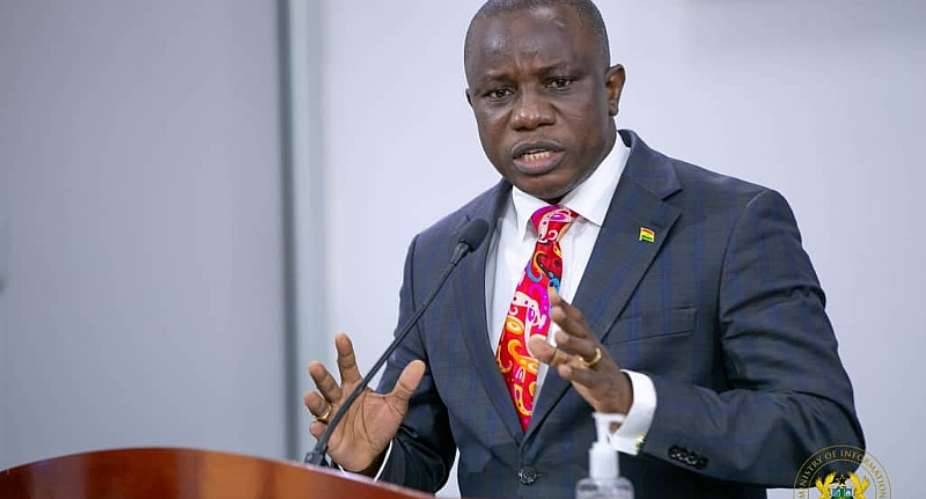In a recent interview on Asempa FM’s ‘Ekosii Sen’ program, former Defence Minister Dominic Nitiwul issued a stark warning—Ghana must remain vigilant to prevent a military coup. He revealed that in 2019, certain individuals plotted to destabilize the nation, but their plans were successfully foiled by the country’s security agencies. His concerns, though unsettling, serve as a call to action for national security enhancements.
Why Did Nitiwul Issue This Warning?
In a recent interview on Asempa FM’s ‘Ekosii Sen’ program, former Defence Minister Dominic Nitiwul issued a stark warning—Ghana must remain vigilant to prevent a military coup. He revealed that in 2019, certain individuals plotted to destabilize the nation, but their plans were successfully foiled by the country’s security agencies. His concerns, though unsettling, serve as a call to action for national security enhancements.
Why Did Nitiwul Issue This Warning?
Nitiwul emphasized that while Ghana enjoys professional and loyal armed forces, security threats persist. He highlighted the need for continuous investments in the military and other security institutions to ensure long-term stability. According to him, Ghana requires approximately 50,000 military personnel to effectively protect the country—a figure far higher than the current numbers.
Lessons from Other West African Nations
Ghana may seem stable, but history shows that no country is immune to unrest. Nitiwul pointed out that despite having a strong media presence and democratic institutions, neighboring nations such as Burkina Faso, Guinea, and Mali have experienced coups in recent years. His remarks underline the importance of a well-equipped and highly trained military in safeguarding democracy.
The Reality of Military Leadership and Crisis Management
Reflecting on his tenure as Defence Minister, Nitiwul acknowledged the dedication of Ghana’s Armed Forces but also stressed the difficulties of his role. He noted that a Defence Minister’s legacy is often defined by crises rather than achievements. In other words, success in security is often invisible—only failures make headlines. This statement reinforces the need for proactive measures to maintain national peace and security.
How Can Ghana Prevent a Coup?
Investing in the Military – Expanding and modernizing Ghana’s armed forces can help prevent internal threats.
Enhancing Intelligence Gathering – Preventing destabilization efforts before they begin is key.
Strengthening Democratic Institutions – A resilient democracy reduces the likelihood of military takeovers.
Fostering Economic Growth – Addressing unemployment and economic instability can lower the risk of political unrest.
Conclusion: Stability Requires Action
Nitiwul’s warning should not be dismissed as mere speculation. His experience as Defence Minister provides insight into the real security threats Ghana faces. While the country remains stable today, continuous efforts must be made to ensure its future security. Investing in the military, intelligence, and democratic institutions will help Ghana remain a beacon of stability in West Africa.
What do you think? Should Ghana ramp up its military efforts to prevent instability? Share your thoughts in the comments below!
Nitiwul emphasized that while Ghana enjoys professional and loyal armed forces, security threats persist. He highlighted the need for continuous investments in the military and other security institutions to ensure long-term stability. According to him, Ghana requires approximately 50,000 military personnel to effectively protect the country—a figure far higher than the current numbers.
Lessons from Other West African Nations
Ghana may seem stable, but history shows that no country is immune to unrest. Nitiwul pointed out that despite having a strong media presence and democratic institutions, neighboring nations such as Burkina Faso, Guinea, and Mali have experienced coups in recent years. His remarks underline the importance of a well-equipped and highly trained military in safeguarding democracy.
The Reality of Military Leadership and Crisis Management
Reflecting on his tenure as Defence Minister, Nitiwul acknowledged the dedication of Ghana’s Armed Forces but also stressed the difficulties of his role. He noted that a Defence Minister’s legacy is often defined by crises rather than achievements. In other words, success in security is often invisible—only failures make headlines. This statement reinforces the need for proactive measures to maintain national peace and security.
How Can Ghana Prevent a Coup?
Investing in the Military – Expanding and modernizing Ghana’s armed forces can help prevent internal threats.
Enhancing Intelligence Gathering – Preventing destabilization efforts before they begin is key.
Strengthening Democratic Institutions – A resilient democracy reduces the likelihood of military takeovers.
Fostering Economic Growth – Addressing unemployment and economic instability can lower the risk of political unrest.
Conclusion: Stability Requires Action
Nitiwul’s warning should not be dismissed as mere speculation. His experience as Defence Minister provides insight into the real security threats Ghana faces. While the country remains stable today, continuous efforts must be made to ensure its future security. Investing in the military, intelligence, and democratic institutions will help Ghana remain a beacon of stability in West Africa.
What do you think? Should Ghana ramp up its military efforts to prevent instability? Share your thoughts in the comments below!



No comments yet
Be the first to share your thoughts!